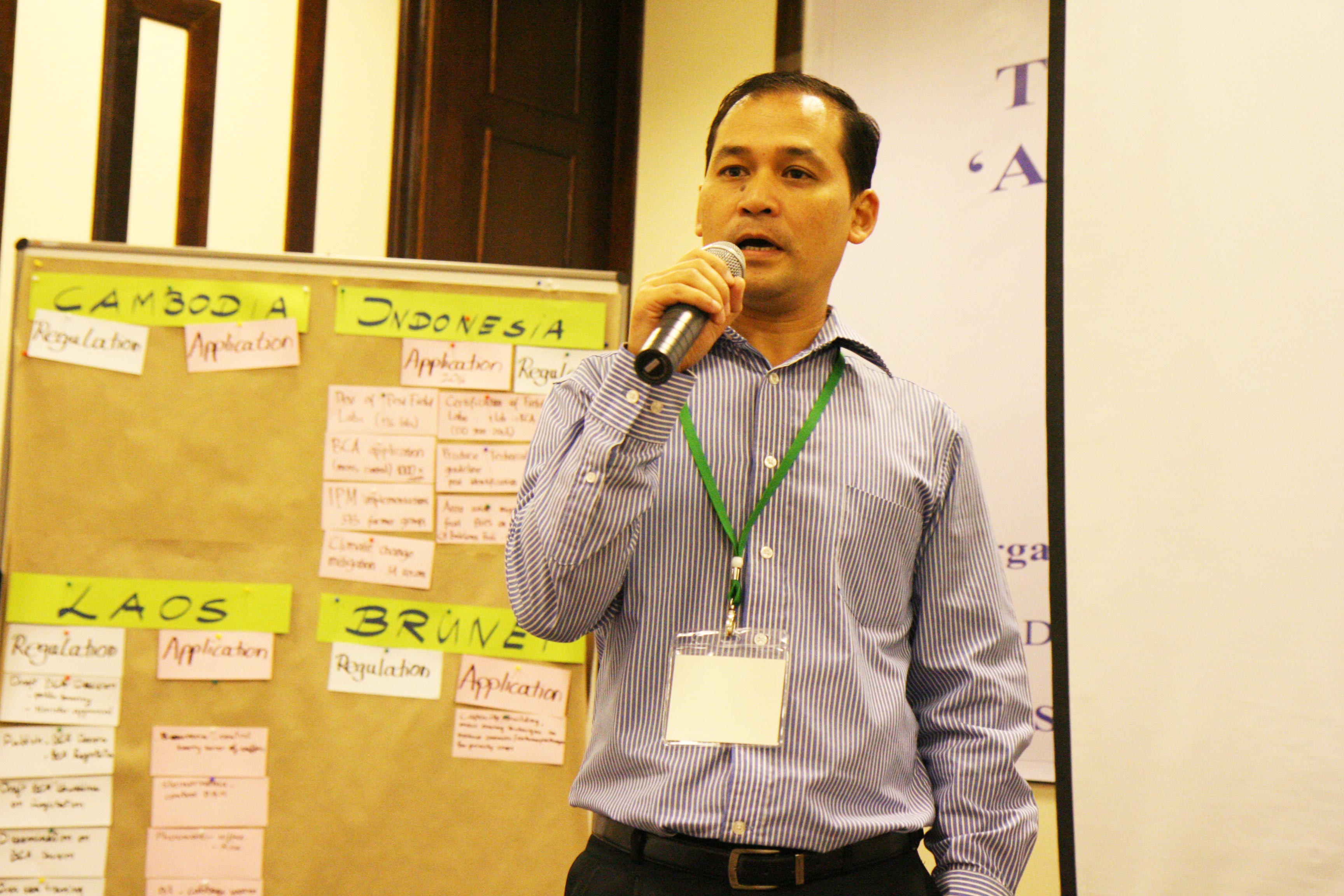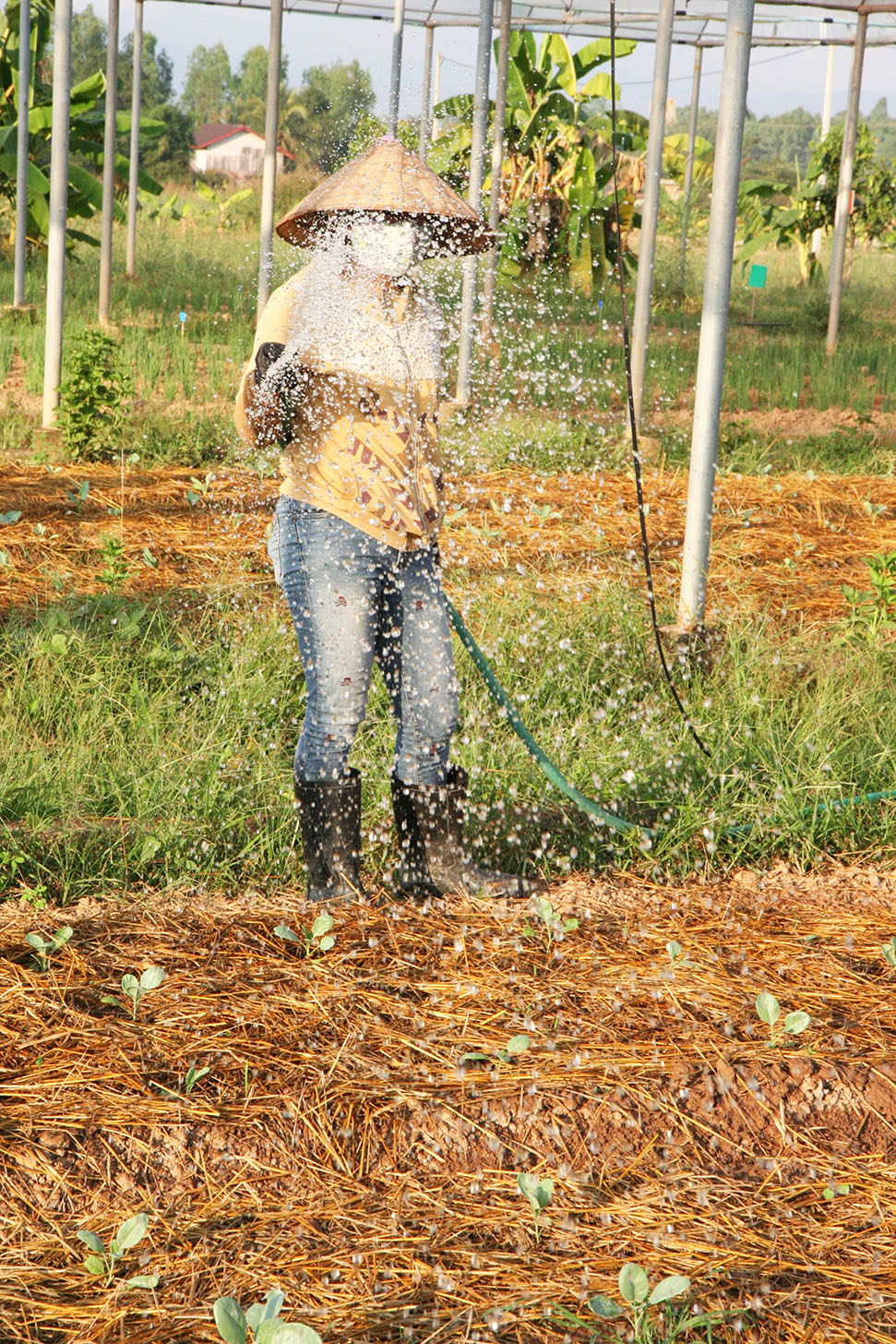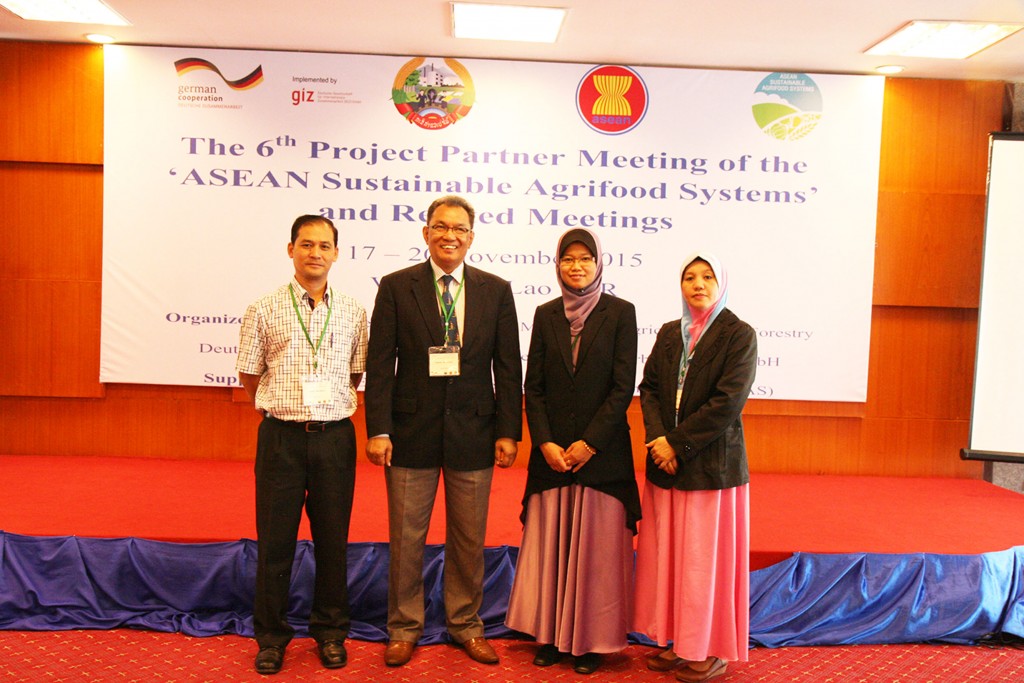Mr. Ismail Iberahim, Principal Assistant Director of Plant Biosecurity Division with Malaysia’s Department of Agriculture recently attended the 6th Project Partner Meeting of the ASEAN Sustainable Agrifood Systems (ASEAN SAS) in Vientiane, Lao PDR where he gave this interview.
What is your role and responsibility at your agency?
“My role is supporting sustainable agriculture. As an agricultural officer, my role is to teach the farmers about good agricultural practices and sustainable agriculture is also included.”

Why do you think we need to support sustainable agriculture?
“We need to be looking for safety first. In agriculture production, what is the most important is not the quantity of the food produced but its quality. The food we produce must be safe to consume. And, everybody in the society no matter if he or she is rich or poor should get chances to similar safe food. There should not be any differences.”
What are the challenges in supporting sustainable agrifood systems in Malaysia?
“The major challenge in promoting sustainable agrifood systems in Malaysia is making everybody know what the sustainable agrifood systems are and why we need the sustainable ways to produce our food. When people understand, they will recognize and appreciate sustainable agriculture produce, and will be looking for it and willing to pay more for it.”
What would you explain to make people understand what the sustainable agriculture is?
“The sustainable agriculture is the natural way in doing agriculture, for example, we use the natural fertilizer, recycle the waste in the farm, and if possible try to minimize the use of chemicals. The most important thing is we need to conserve our environment and natural resources. When we change the nature, it has very negative effects to the environment.”
“In agriculture production, what is most important is not the quantity of the food produced but its quality. The food we produce must be safe to consume.”

How have the issues been tackled so far in your country?
“So far, in Malaysia only the farmers have been taught about sustainable agriculture. And the rest, the majority of the people, do not know about it. When this happens, the farmers do not get any recognition or any appreciation from the major society for doing sustainable agriculture farming. That is why it is very difficult to make the farmers follow or adopt the sustainable agriculture practices. To them, it does not make any difference whether they follow it or not. They do not get any profit, or any kinds of incentive. For example, although they get a certificate for Good Agricultural Practices (GAP), but if they will not get any higher price for their farm produces, the certificate will be no use for them. I think this issue must be tackled. All the people, not only the farmers, need to know what the sustainable agriculture is and complete the chain of the sustainable agrifood systems.”
If you could do anything, what would you like to do in supporting sustainable agrifood system?
“In my mind I would like to educate everybody. Let everybody knows what sustainable agrifood systems are. And, I wish that I could use whatever channel of media, TVs or newspapers, to make the information reach the target. If it is only just the farmers who are aware of these, we will not get success.”
“I wish some days in our ASEAN community people will change attitudes.”
Is there anything that you would like to say?
“I wish some days in our ASEAN community people will change attitudes. For example, in the developed countries people are caring for the environment, and concern about how they are doing agriculture. I am working with Pesticide Control Division, so I always compare. For example, between Malaysian farmers and farmers from the developed country the way they think, it is very different. Farmers in the developed countries are going for safe food. They concern about safety first, and they conserve the environment. If possible, they do not want to use the chemicals anymore. They go for the natural enemy, instead. But in the developing countries, especially in Malaysia, farmers are only just thinking to get the high volume of the produces and with the good looking ones. They also want the fast effect and they are not thinking about tomorrow, but just thinking for today. I wish one day, our farmers can change their attitude towards sustainable agriculture.”
If they do not change, what would happen in the next five or ten years?
“May be, during the time the soil will be deteriorating. The soil will not be fertile anymore. May be, farmers will use double or triple fertilizers compared to today, May be, during that time too many pests have been resistant to the pesticides. May be, during that time there is no more natural predator around and we only have to depend on the chemicals. It will be a very bad situation if these happen.”
Over 70 experts from ten ASEAN Member States recently met in Lao PDR to mark the ASEAN SAS project’s mid-term milestone and discuss emerging issues and challenges to food security, including environment and climate changes in order to develop strategies for project activities post 2015. ASEAN SAS, since the inception of the second phase in 2014, has implemented activities under three priority areas namely policy framework, production technologies and market linkages to encourage regional cooperation in promoting sustainable food production at the national level as well as enhancing synergies and boosting greater impact in respective countries. The 6th Project Partner Meeting and related Mmeetings run on 17-20 November 2015 co-hosted by the Department of Agriculture, Ministry of Agriculture and Forestry of Lao PDR.

Interviewed and photos by Rojana Manowalailao, ASEAN Sustainable Agrifood Systems
Transcribed by Sabrina Kessler, ASEAN Sustainable Agrifood Systems